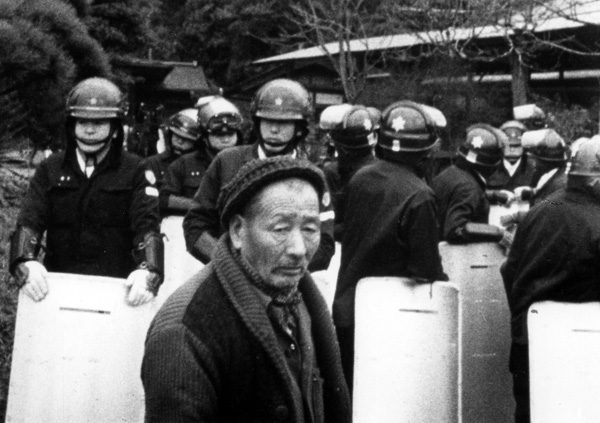Sanrizuka – Heta Village
The program Of Time and Struggle highlights four crucial documentaries made by Ogawa Productions between 1971 and 1986. This collective of filmmakers founded in the late 1960s, under the direction of Ogawa Shinsuke, chronicled with remarkable dedication some of the major political and social upheavals in Japan’s ‘season of politics’ from the 1960s through the 1970s, including the struggles of the student movement and long-term resistance by farmers in Sanrizuka. Ogawa Productions’ work aspired to collective decision-making, achieving an unusual level of engagement with the people they filmed. They aimed to make independent and partisan films, while at the same time developing alternative ways for distributing, screening and discussing their work.
